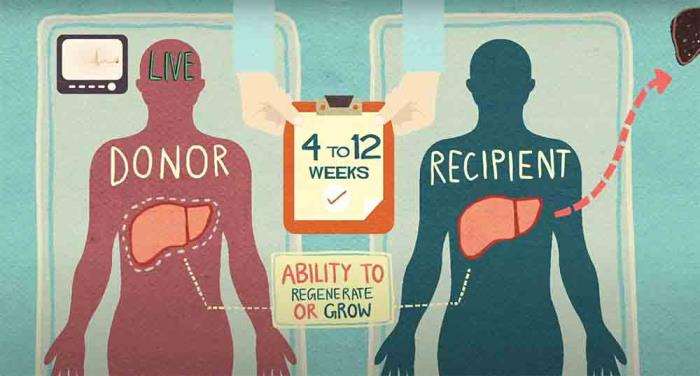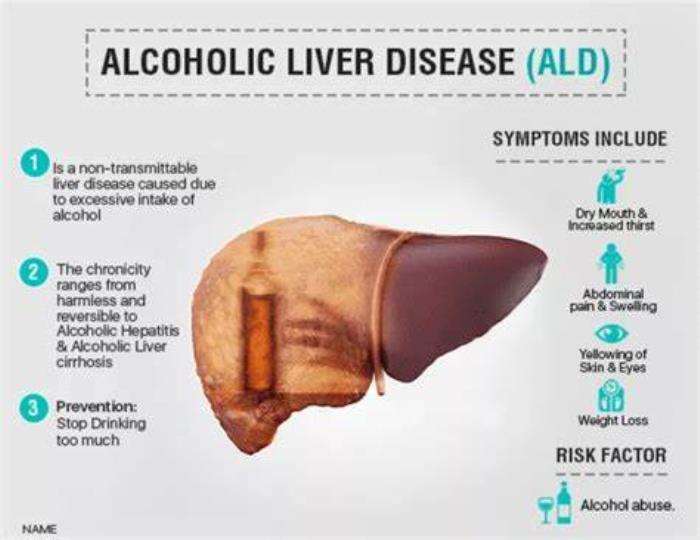Alcoholic liver disease (ALD) results from prolonged alcohol abuse, leading to liver inflammation, scarring, and eventually cirrhosis or liver failure. It is a major cause of chronic liver disease globally and significantly impacts liver function, causing complications such as jaundice, ascites, and hepatic encephalopathy.
Medical disclaimer: This content is for general awareness and does not replace a doctor’s consultation. For diagnosis or treatment decisions, consult a qualified specialist.
When Is Liver Transplantation Recommended for Alcoholic Liver Disease?
Liver transplantation is considered for patients with end-stage liver disease caused by ALD when the damage is irreversible and life-threatening. Transplantation is recommended only when patients demonstrate a commitment to long-term sobriety and have addressed the underlying alcohol dependency.
Eligibility Criteria for Liver Transplant in Alcoholic Liver Disease Patients
Eligibility for liver transplantation in ALD patients includes severe liver damage unresponsive to medical treatment, a demonstrated period of sobriety (often six months or more), and adherence to rehabilitation programs. Additionally, patients must pass psychological evaluations and show no contraindications such as active infections or other severe comorbidities.

The Importance of Sobriety Before Liver Transplantation
Sobriety is critical before a liver transplant to ensure the best possible outcomes. Continued alcohol use can harm the new liver, increase the risk of complications, and lead to poor post-transplant outcomes. Abstinence also demonstrates the patient’s commitment to maintaining a healthy lifestyle post-surgery.
Evaluating Abstinence: The Role of the Six-Month Rule
The six-month rule, commonly used in transplant programs, requires patients to maintain sobriety for at least six months before being listed for transplantation. This period allows for liver function to potentially improve without surgery and assesses the patient’s dedication to overcoming alcohol dependency.
Psychological and Social Assessments for Transplant Candidacy
Psychological and social evaluations are essential to determine a patient's readiness for liver transplantation. These assessments identify mental health issues, substance abuse risks, and the availability of a supportive environment to aid recovery. Comprehensive care plans are developed based on these findings.
Pre-Transplant Counseling for Alcoholic Liver Disease Patients
Pre-transplant counseling provides ALD patients with education about the transplant process, the importance of abstinence, and the lifestyle changes required for long-term success. Counseling also addresses emotional and social challenges, helping patients prepare for the physical and psychological demands of the procedure and recovery.
Managing Co-Existing Conditions in Alcoholic Liver Disease Patients
Patients with Alcoholic Liver Disease (ALD) often face co-existing conditions like cardiovascular disease, diabetes, and infections. Proper management of these conditions is crucial before and after liver transplantation. Comprehensive care that includes medication adjustments, lifestyle changes, and regular monitoring can significantly improve patient outcomes and ensure a smoother recovery process post-transplant.

How Liver Transplantation Improves Quality of Life for ALD Patients
Liver transplantation offers a life-saving option for patients with end-stage ALD, significantly improving their overall quality of life. It alleviates symptoms like jaundice, ascites, and encephalopathy, while also offering the potential for a longer and healthier life. Successful liver transplants can help ALD patients regain their independence and enjoy a better quality of life free from the debilitating effects of liver failure.
Risks and Challenges in Transplantation for Alcoholic Liver Disease
Transplanting a liver into a patient with ALD presents unique challenges. The risk of recurrence of alcohol use post-transplant, complications related to pre-existing liver damage, and the potential for graft rejection are significant concerns. Additionally, ALD patients often face a longer recovery time due to psychological and social factors, which must be addressed in the comprehensive care plan.
Post-Transplant Care for Patients with Alcoholic Liver Disease
After liver transplantation, ALD patients require a tailored care plan that includes managing immunosuppressive medications to prevent rejection, addressing the psychological impact of recovery, and monitoring for signs of recurrence of alcohol use. Multidisciplinary teams including hepatologists, psychologists, and addiction specialists are key to the patient's long-term success and well-being.
The Role of Support Groups in Recovery After Liver Transplant
Support groups play a vital role in the recovery of ALD patients post-transplant. These groups provide emotional support, promote sobriety, and offer a community of individuals who understand the struggles of ALD recovery. Peer support helps reduce isolation, which is often a concern for transplant patients, and encourages long-term commitment to health and wellness.
Preventing Recurrence of Alcohol Use Post-Transplant
Preventing recurrence of alcohol use is essential for the success of liver transplantation in ALD patients. Post-transplant care includes counseling, addiction therapy, and strict monitoring of alcohol consumption. Education on the risks of relapse, particularly the impact on the transplanted liver, is crucial in maintaining a long-term, healthy recovery.
Managing Immunosuppressive Therapy in ALD Patients
Immunosuppressive therapy is critical in preventing organ rejection post-transplant but needs to be carefully managed in ALD patients. These medications increase the risk of infections, cancers, and kidney dysfunction. The goal is to balance sufficient immunosuppression to prevent rejection while minimizing the risks of long-term complications.
Long-Term Health Monitoring After Liver Transplant for ALD
Liver transplant recipients with ALD require long-term health monitoring to detect early signs of complications, such as liver rejection, infections, and recurrence of alcohol use. Regular check-ups, liver function tests, imaging studies, and psychological assessments are essential for maintaining graft health and addressing any emerging health issues promptly.
Addressing Stigma Around Liver Transplant for Alcoholic Liver Disease
There is often a stigma associated with liver transplantation for ALD patients due to the disease’s association with alcohol consumption. Addressing this stigma requires patient education, compassionate care, and a focus on recovery and rehabilitation. Support groups and mental health counseling can help patients cope with societal judgment and focus on their health and healing.
Advances in Transplantation Techniques for Alcoholic Liver Disease Patients
Advances in liver transplantation, such as the use of expanded criteria donors (ECD), machine perfusion, and minimally invasive techniques, are improving outcomes for ALD patients. These innovations allow for better organ preservation, reduce the risk of surgical complications, and promote faster recovery, making liver transplant a more viable option for ALD patients.
Ethical Considerations in Liver Transplant for Alcoholic Liver Disease
The decision to perform a liver transplant on an ALD patient often involves ethical considerations, particularly regarding the six-month sobriety rule. This rule ensures that patients have demonstrated their commitment to abstaining from alcohol, reducing the risk of organ failure after transplantation. Ethical questions also arise concerning the allocation of scarce liver resources and the potential for relapse.
Understanding Recidivism and Its Impact on Transplant Outcomes
Recidivism, or relapse into alcohol use after liver transplant, is a significant risk factor for graft failure and poorer long-term outcomes. Understanding the psychological, social, and behavioral factors that contribute to relapse is key to providing appropriate pre- and post-transplant care. Effective management of addiction, psychological support, and ongoing monitoring can reduce the incidence of recidivism and improve transplant success.
Innovations in Minimally Invasive Liver Transplant Techniques
Explore innovations in minimally invasive liver transplant techniques. Learn about groundbreaking advancements like robotic-assisted surgery and suture-free technologies that are transforming liver transplantation with reduced recovery times and surgical risks.
Risks and Complications of Liver Transplant Surgery
Understand the risks and complications of liver transplant surgery. This blog covers potential challenges such as organ rejection, infections, and long-term health issues, providing insights into their management for better outcomes.
Future Directions in Liver Transplant for Alcoholic Liver Disease
The future of liver transplant for ALD patients lies in better patient selection criteria, advances in organ preservation technologies, and improved post-transplant care strategies. Research into the molecular mechanisms of ALD, personalized immunosuppressive regimens, and interventions for preventing relapse holds promise for improving long-term outcomes for these patients.
Best Liver Transplant in India
The Best Liver Transplant in India provides life-saving treatment for patients with end-stage liver disease, offering advanced surgical techniques and comprehensive post-transplant care for successful recovery.
Best Liver Transplant Hospitals in India
The Best Liver Transplant Hospitals in India are equipped with cutting-edge technology and expert medical teams, ensuring top-notch care and optimal recovery for liver transplant patients.
Liver Transplant Cost in India
The Liver Transplant Cost in India offers an affordable solution for patients needing liver transplantation, ensuring access to world-class care at competitive pricing.
Best Liver Transplant Surgeons in India
The Best Liver Transplant Surgeons in India are highly skilled in performing liver transplants, providing precise surgeries and personalized care to ensure the best possible outcomes for their patients.
FAQ Section
1. What is alcoholic liver disease, and how does it affect the liver?
Alcoholic liver disease (ALD) is liver damage caused by excessive alcohol consumption. It includes conditions like fatty liver, alcoholic hepatitis, cirrhosis, and liver cancer. Over time, alcohol damages liver cells, leading to scarring and impaired liver function.
2. When is liver transplantation considered for alcoholic liver disease?
Liver transplantation is considered for ALD patients with end-stage liver disease, cirrhosis, or liver failure. It is typically recommended when other treatment options fail, and the patient is otherwise healthy enough to undergo surgery.
3. What is the six-month sobriety rule for liver transplant eligibility?
The six-month sobriety rule requires ALD patients to demonstrate at least six months of abstinence from alcohol before being considered for a liver transplant. This rule helps ensure that patients are committed to long-term sobriety, which is essential for transplant success.
4. How can patients prepare for liver transplant surgery?
Preparation involves medical evaluations to assess the patient's overall health, psychological counseling, and education about post-transplant care. Patients are also advised to stop smoking, manage other health conditions like diabetes, and address any alcohol use before surgery.
5. What support systems are available for ALD patients post-transplant?
Support systems include addiction counseling, mental health therapy, support groups, and rehabilitation programs. These resources help ALD patients stay sober, adjust to life after transplant, and manage any psychological or emotional challenges they face.
Enhancing organ donation awareness in India through education, community engagement, and robust support systems. How to Increase Awareness About Organ Donation in India
Explore the ethical complexities in liver transplant allocation, emphasizing fairness, medical urgency, and evolving policies. Ethical Challenges in Liver Transplant Allocation: Who Gets a Liver First?
Living liver donation is a life-saving act with manageable risks and generally positive health outcomes for donors. The Impact of Living Liver Donation on Donors’ Health